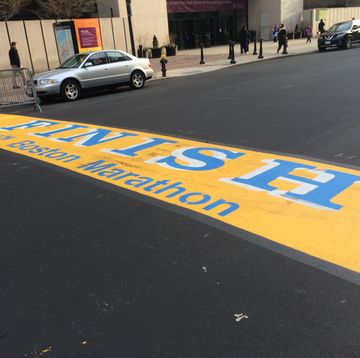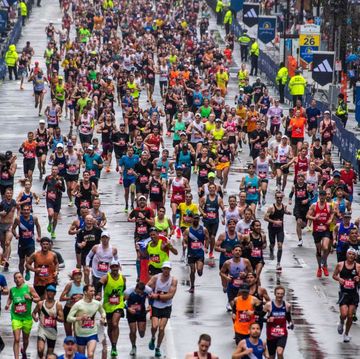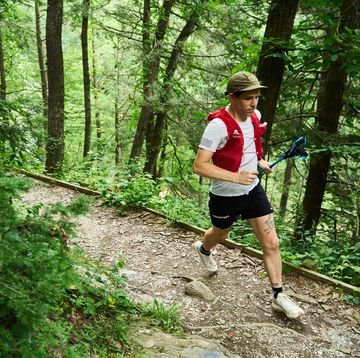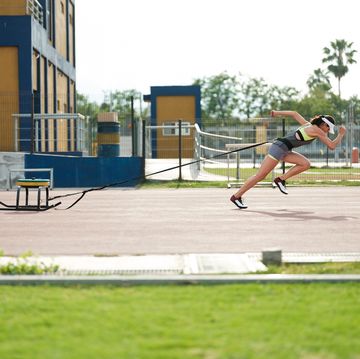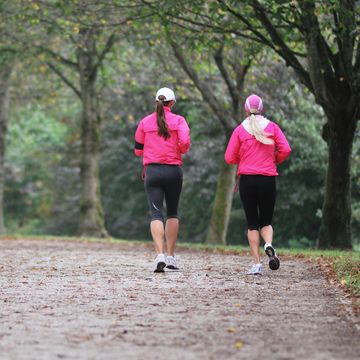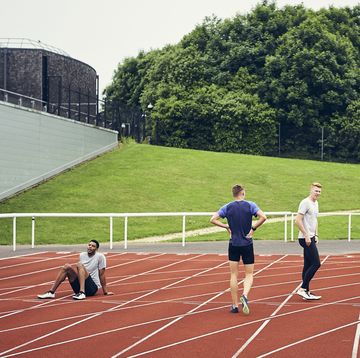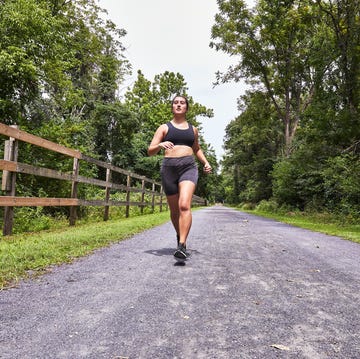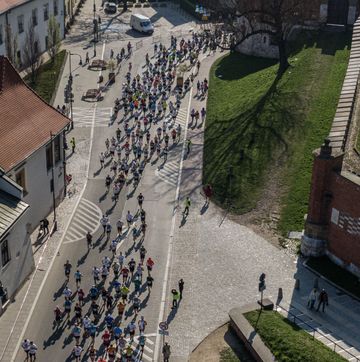In the fall of 2008, as they began their junior year at Alameda High School in California, Zach Perkins and his twin brother, Charlie, were both 5-foot-6, 140 pounds. Both ran cross country and track but preferred soccer, although their small size was a drawback. Their father, Randy, suggested they make running more of a priority that year, and they took his advice. Charlie ran 15:22 to win the 2009 Mt. SAC Cross Country Invitational 5K and the following spring had a best of 9:35 for 3200m on the track. Zach finished fourth at the 2010 California Meet of Champions in the north coast section, running 4:21.64 for 1600m. Though neither of the twins was a blue chip prospect, both wanted to run at the Division I level in college and ended up at the Air Force Academy in Colorado Springs, Colo.
The Perkins brothers have struggled with injuries as collegiate athletes, although Zach was healthy all last winter and spring. Last June, he ran a personal best of 3:41.46 for 1500m in the preliminary at nationals outdoors, and in the final, a tactical race, he finished second behind Mac Fleet of Oregon. Last fall, Charlie and Zach both contributed to Air Force’s best cross country season in a decade and the team’s first appearance at nationals since 2004.
The Perkins brothers train under Air Force distance coach Juli Benson (née Henner), who arrived in Colorado Springs in 2009 after coaching stints at James Madison, Georgetown and George Mason. Benson was a professional runner for seven years, and she represented the U.S. in the 1500m at the 1996 Olympics in Atlanta. She currently coaches with the Air Force World Class Athlete Program.
Zach Perkins spoke to Running Times during the last week of January.
Running Times: Your brother Charlie is a senior at Air Force and you’re a junior. Did you not both enroll in the fall of 2010?
Zach Perkins: Charlie went directly from high school to the Academy but my academics weren’t good enough coming out of high school, so I was assigned to the Air Force Academy Preparatory School and spent 10 months there. My brother has had an injury-hampered three years but he’s doing well now. He was on the varsity cross country team last fall that made it to nationals, and I think we’ll see some fast stuff from him on the track.
RT: Last year you were one of the big surprises of the outdoor track season. Did you expect to be one of the nation’s top 1500m runners by last June?
ZP: All of last year we knew I could run in the low 3:40s, and I think if I’d had more opportunities to race after the end of the season, I could have run under 3:40. I ran 3:45 or 3:46 at Stanford and remember feeling pretty flat, because it was my first race outdoors. I really wasn’t expecting a lot at that race so it was a good indication of what was to come. I think it’s just that I took a little longer to mature than is usual. I’ve always been a hard worker both in athletics and academics and have had to work harder than most. My outlook is that if I’m going to be a Division I runner, I don’t want to just put up OK marks, I should strive to be the best. And there are so many resources here with Coach Benson and the rest of the staff and a really structured environment. A lot of people think it’s hard to be a good athlete at the academies but it’s just a great environment here with no distractions. So I knew I could get to this level here, it’s just that I took longer than most.
RT: I understand that you ran fairly light mileage last year with a lot of cross training. Is that still the case, and what sort of cross training have you been doing?
ZP: Last track season Coach Benson didn’t have me doing a lot of heavy mileage because I’d had problems with injuries freshman year. But I’ve learned to do a lot of the little stuff every day, you know, making sure you care for your body and aren’t pushing it too hard, so you can wake up and train hard the next day. The majority of the cross training I do is on the stationary bike, six or seven hours a week, and I run in the pool some and get out on my road bike sometimes. During cross country season I was able to get in 60 to 65 miles a week with the same amount of cross training. Most of the supplemental and strength work we’re doing right now is for range-of-motion and injury prevention. We do some hard lifting but the emphasis is on maintenance and staying injury-free. I also do a lot of push-ups and pull-ups on my own.
RT: Air Force advanced to nationals in cross country and your own season was really solid. What’s your outlook on cross country as it relates to your success on the track?
ZP: Last fall was essentially my first cross country season here. My freshman year I had just finished basic training for the Academy so my season wasn’t anything great, and then I was hurt in 2012. There was definitely a learning curve with it. I was hitting mileage and a level of training I’d never seen before and I was a little fatigued. Also running 10K cross country is completely different from racing the 800 or 1500. Track is more individual and the nerves come into it more. In cross country you’re with your team before your race and you’re going to put it out there for the guys you train with. Plenty of times I would say to myself, “Oh man, I’m not having a good race.” But our goal was to make it to nationals and if I threw it into the bucket, what would I be saying to the other guys?
RT: Are you feeling noticeably stronger now as opposed to a year ago, having had a full cross country season with the higher mileage?
ZP: The strength’s there, I can definitely notice it. We haven’t really done much speed work yet, just a couple workouts, and I’ve raced a 1,000m and an 800m. My recovery after those races was a lot quicker than last year and I think I’ll notice the real difference when we get toward the end of indoor season, when we start polishing up and getting ready for nationals.
RT: With nationals set for Albuquerque, the altitude should play into your hands somewhat. What are your goals for the indoor season?
ZP: Of course we want to run fast times indoors, but Coach Benson says it’s hard to do that and then come back and run really well outdoors. So we’re focusing on the DMR and hopefully the 3,000m. My outlook on it is that outdoors is more individualized while indoors you can have a lot of fun with a DMR team. So I’ll try to run fast indoors and winning nationals titles, that’s the goal. But outdoors is where I’ll be prepared to go real fast.
RT: And is the altitude likely to be a significant factor at indoor nationals?
ZP: I’ve never really put a lot of thought into it, and every national caliber runner is smart and knows racing tactics and where their strengths are. But I’ve noticed that there’s a lot less room for error at altitude. You just die harder—you make a surge or something and it doesn’t end up playing out, it’s harder to recover. But regardless everyone at nationals is fast and I don’t think it will be a huge factor.
RT: Have you given thought to a post-collegiate running career? Is that a possibility for you given your ties with the Air Force?
ZP: Yeah, they offer a program called WCAP, the World Class Athlete Program. You have to hit qualifying standards for it and I think it’s the Olympic Trials B standard for the 1500, which I did hit last year. And then even if you hit the standard, there’s no guarantee that you’ll be selected. It’s definitely something I want to do, because I want to run as long as I can. But my outlook is that if something happens and I just don’t improve, I don’t want to waste my time and the Air Force’s time and money having me be just an average runner. Because when you’re on WCAP you have the salary of whatever rank you are and your job is just to train professionally with the goal of making Olympic and world championship teams. There’s always been the appeal of being a pilot but I think I’d rather try and make an Olympic team than be a pilot. So I’ll probably have to work some desk job for the Air Force and hopefully I’ll be stationed somewhere near the Academy, so I can still train with Coach Benson. There’s a risk factor involved, but it’ll be a great opportunity nonetheless.
RT: I know your dad was a miler in high school and during college at William & Mary. When did you finally beat his personal best in the mile?
ZP: He ran like 4:11 or 4:12 in high school and then had some injury problems in college, so he didn’t really run faster. But he always gave me crap because in high school, had I been a smarter runner I probably could have beat his best time. I didn’t finally do it until my first indoor race last year, when I won a mile at Nebraska in about 4:09. So now I get to give him crap because I’ve run times he’s never going to run.


